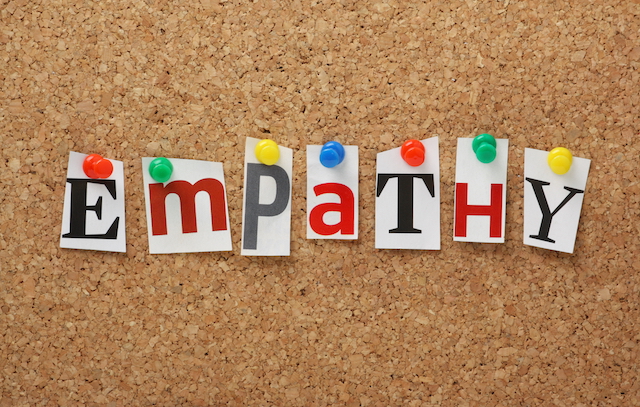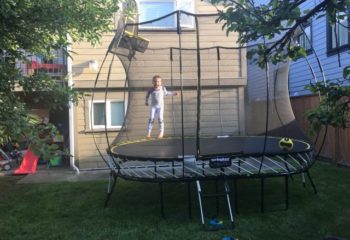What is empathy? Empathy is a way to connect with others by understanding how they feel and see the world. It is stepping out of your own shoes temporarily and considering the other’s perspective and feelings, accepting their experience as if they were your own.
Practicing empathy on your everyday interactions with your children, your partner and those you love, shows that you are valuing and respecting their experiences, and it helps maintain and improve your connection.
See a video below with a fun example that shows what empathy looks like.
Phil, the Dad from Modern Family, discovers what it means to practice empathy in this episode:
Empathy, The Key To Stronger Relationships with Your Children
Practicing empathy is not easy. It is a skill that requires accepting another person’s experience, even if you have a hard time understanding why they feel that way.
I have been working on improving my communication with my boys and empathy has been a great tool that has provided an opportunity to learn how they experience the world and why they behave the way they do. Empathy really opens the door to finding positive ways to work through different situations.
It is definitely hard to practice empathy when there are many emotions involved, but taking a step back to take the other person’s needs into account really makes a difference on how you see conflict and how you resolve it.
I also think teaching young children how to practice empathy is very important. As they grow older and get to their teen years, having the skills to be able to improve their connection with others is a great advantage.
Here are some simple tips to start practicing empathy:
Listen: Try to really listen to what the other person is saying and how they feel. Try not to interrupt and instead make eye contact, nod, encourage conversation.
Acknowledge their feelings and emotions: Instead of saying things like, “Don’t yell at me!” or “You are always so angry!”, start the conversation with: ” You sound pretty upset, I’d like to try to understand how you are feeling…..”, “You seem really upset, how can I help”.
Offer a Hug: Whenever your children are going through high emotions, a comforting hug letting them know you are there for them can be appreciated. Of course, this doesn’t work in every situation, but being present physically can help provide comfort and help them calm down.
I myself am working on getting better at this with my boys and with all of my relationships in general. It is not easy and it takes work but I can see little changes and I love the fact that I am showing them that I care and I am there for them.
Do you practice empathy when communicating with your children? Do you have any other tips to help practice empathy? I would love to hear from you!










17 Comments on “Empathy, The Key To Stronger Relationships With Your Children”
Empathy is important but often difficult too. Sympathy is also something that one should always have for others.
This was a great read with lots of good tips for parents. My oldest is very sensitive and it can be overwhelming understanding her emotions at times.
This is a great post and empathy is something we can all work on!
In my daughters kindergarten class, they teach the children empathy by bringing in a baby boy. my daughter has been watching him grow and learn throughout the year
I really enjoyed and related with this article, I think empathy can help everybody while it’s making them feel better or just able to understand and relate.
Great post! Empathy is so very important in all our lives, big or small.
It’s the key to most relationships too! Great topic covered here. Thanks
those are some good tips
Empathy has been largely missing in all aspects of life
Empathy is how I conduct everything in my life; how I speak to others, how I raised the boys, pursuit of my career, etc.
Empathy for our children is so very important, at all ages.
I have 4 teenagers and without being empathetic to each
of them, I wouldn’t be able to parent very well. They need
to know I am always available to hear how they are doing
and feeling. Demonstrating sensitivity while listening and
telling them I understand (or at least try to!) is key to having
strong bonds with them as they enter adulthood.
My son is very empathetic, he is very sensitive in nature. I love seeing his empathy shine through.
We all need to work on empathy as it is very important, and our children should see in us.
Emapthy is so important as I look around at adults who haven’t yet mastered it.
My son really struggles with this – I will try some of these tips thanks
Empathy is so important, thanks for sharing!
It is very important to teach your kids about empathy.